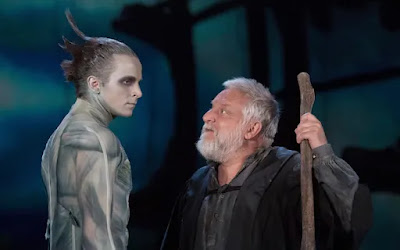English 3213: Shakespeare
Paper #1: Shakespeare’s Secret Sauce
INTRO: In Wells’ William Shakespeare: A Very Short
Introduction, he notes that notonly did Shakespeare obsess over comedy for most of his
career, but “it is typical of Shakespeare that he broadens [a comedy’s]
emotional range by enclosing the farcical action with a serious framework”
(71). These moments are almost part of Shakespeare’s comedic DNA,
and you can find them in virtually every Shakespearean comedy. It’s fascinating
to try to isolate these recurring themes, since this tell us not only how he
wrote his plays, but what motivated him to do so. As a playwright, what did he
find funny, compelling, disturbing, perplexing, and most of all, human? And how
did he define a ‘comedy’?
PROMPT: For your first paper, I want you to discuss ONE specific element of Shakespeare’s comedy that repeats almost verbatim from Much
Ado to The Shrew. You might call this variations on a theme, since
it doesn’t have to presented in exactly the same way, but it should be the same
‘theme,’ meaning that if you put them side by side, you would go, “oh yeah,
there it is again.” So the question is why does he repeat this element, and how
does he change/adapt it from one play to the next? Can we tell that one version
is earlier and one later? Does the language change? The types of characters?
The dramatic situation? And most of all, does he make it a joke…or does he veer
away from comedy altogether?
Some themes/elements you might consider are:
- Language—specific
speeches, exchanges, jokes/puns, etc.
- Characters—stock
types (the naïve lover, the feuding couple, the scheming villain, the
saucy servant, the bumbling official, etc.)
- Scenes—specific
interactions, comic confusions, pranks at other characters’ expense, etc.
- Genre—moments
when we enter a different kind of play (tragedy, farce, etc.)
- Songs—the
way he incorporates music/poetry from outside the play
- Meta
moments—where he seems to be winking at the audience, showing his
awareness of being an actor/playwright/poet
- Others…?
NOTE: Try to make it more than a compare/contrast essay.
Look at it more as figuring out why he chose to repeat this element, what it
reveals about his comedy, and how he might have expanded it from one play to
the next (especially as he matured as an artist).
REQUIREMENTS
- Page
limit optional, but we both know when you haven’t put in enough work!
- QUOTE
from each play and examine the quotes—or as we say in English, “close
reading.” Don’t just summarize what you see, SHOW
us.
- Introduce
quotations with the Act and Scene like so “Act 2.3,” etc., and cite the
page number from your edition.
- DUE IN
TWO WEEKS: Thursday, October 3rd by 5pm
REVISED COURSE SCHEDULE
T 24 Shakespeare, The
Taming of the Shrew, Induction-Act 1
R 26 The Taming of the Shrew, Acts 2-3
(ALSO: Originals Reading @ 3:30)
OCTOBER
T 1 Shakespeare, The
Taming of the Shrew, Acts 4-5
R 3 Ten Things
I Hate About You; Paper #1 due by 5pm
T 8 Ten Things
continued
R 10 FALL BREAK
T 15 Film: Macbeth
adaptation (TBA)
R 17 Film Continued
& Wells, William Shakespeare, Chapter 6
T 22 Shakespeare, Macbeth,
Acts 1-2
R 24 Shakespeare, Macbeth,
Acts 3-4
T 29 Shakespeare, Macbeth,
Act 5
R 31 Film: A
Thousand Acres (1997)
NOVEMBER
T 5 Film
Continued / Paper #2 due by 5pm
R 7 Shakespeare, King
Lear, Act 1
T 12 Shakespeare, King
Lear, Acts 2-3
R 14 Shakespeare, King
Lear, Act 4-5
T 19 Shakespeare, The
Tempest, Acts 1-2
R 21 Shakespeare, The
Tempest, Acts 3-5
T 26 Paper #3
due by 5pm (no class)
R 28 THANKSGIVING
BREAK
DECEMBER
T 3 Wells, William
Shakespeare, Chapter 8 & Epilogue
R 5 Adaptation
Discussions/Wrap Up
FINAL EXAM PRESENTATIONS: TBA






















